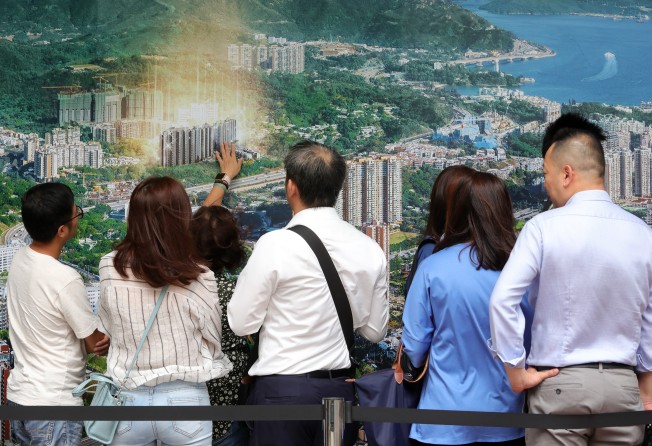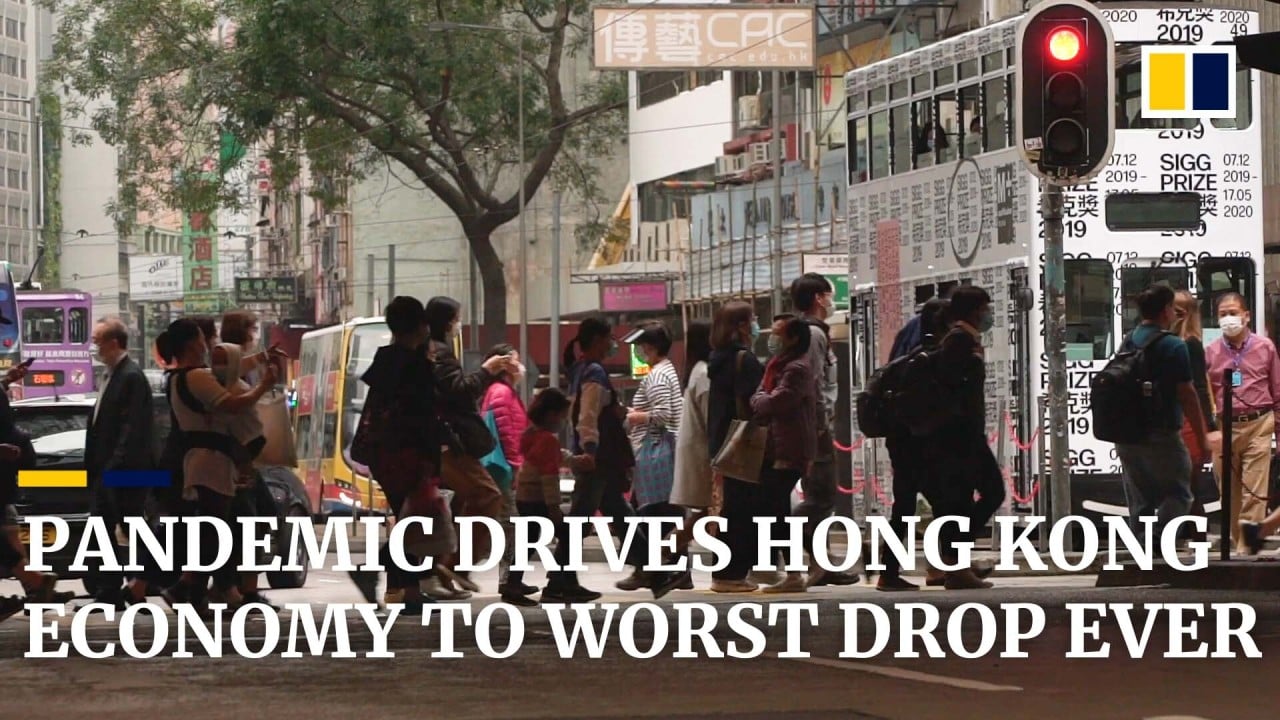Hong Kong property agents turn to virtual-reality tours, influencer-style videos to beat coronavirus-driven slump in home sales
- Centaline Property Agency generated business worth more than HK$100 million in April by using technology such as virtual reality
- Viewing flats online will remain a major channel to look for property among Hongkongers in post-pandemic world: Midland Realty

Virtual-reality tours of properties have come to the rescue of major Hong Kong agencies amid the coronavirus pandemic, which has disrupted traditional sales channels and viewing patterns, with one company describing the technology as “life to us”, helping it “survive and stay competitive”.
Centaline Property Agency, Hong Kong’s largest agent by number of outlets, said it generated business worth more than HK$100 million (US$12.9 million) in April – about a third of its business for the month – by letting potential buyers use the technology to compare and choose their homes.
Its website was viewed more than a million times per day at the height of the outbreak, a 129 per cent jump since a low in November 2019. The number of listings has also surged by 25 per cent.
“The pandemic has been serious since March. Buyers do not go out any more, so half of our business could have been lost,” said Louis Chan, Centaline’s vice-chairman and chief executive of residential in Asia-Pacific. “People used to walk to go see flats and did many rounds. Now, people just need to see virtual-reality videos.”
Chan said the agency normally generates business worth about HK$500 million per month. In April, it saw transactions worth about HK$340 million, with VR helping it generate HK$100 million. “[The use of technology] is a big deal. Everyone is using it. This is life to us. It matters to whether we can survive and stay competitive,” he said.
“It is a megatrend now. There is no way to avoid it. There must be new ways of advertising and operations. It’s like … the media, which must do both paper and online. We have to do everything likewise,” he added.
Potential buyers can call an agent to discuss the property they are viewing and even view it together with the agent at the press of a button. Buyers can make their final decision after viewing the property in the real world and all documents need to be signed in person. The VR tours can accelerate transactions by shortening viewing times by half, Chan said.
Chan said sales in May could be the highest for the year so far and possibly touch the HK$500 million mark. Centaline has already made sales worth HK$200 million this month.
Centaline currently has more than 12,000 VR tour videos on its website, with their number rising by 500 per month. The videos are taken with the consent of owners, and Centaline hopes to have videos for all its listings, Chan said. Each video costs HK$500, and the company plans to spend a further HK$5 million in the coming six months on VR tours. It has been spending more than HK$100 million a year on all the technology it uses. “This is a necessary expense,” he added.
Centaline is not alone in sampling the wonders of technology and the internet. Midland Realty, another Hong Kong property agent, has asked its agents to take videos of themselves introducing flats, and act as so-called key opinion leaders, said Sammy Po, the chief executive of its residential division. The company has adopted VR technology as well.
“Although the pandemic will fade one day, viewing flats online has been widely accepted by buyers, and will remain a major channel to look for property among Hongkongers in the post-coronavirus world,” Po said. Hongkongers’ property purchase habits have undergone profound changes. When social distancing rules were imposed on March 28, the launches of new projects were suspended and viewings of used flats were limited to four people each time. Also, property transactions came to a halt mostly, as many homeowners refused to let potential buyers view their flats amid the outbreak. The online viewing of property was therefore necessary to reducing physical interaction.
Buyers using new technologies to make home buying decisions tended to be in their 20s and 30s, targeting flats that are relatively cheaper, said Alen Leung, assistant district manager at Ricacorp Properties in Tuen Mun.
The company spends more than HK$10 million on technology a year, and the use of new methods such as VR had obviously improved business, said Willy Liu, Ricacorp’s chief executive.
“Buyers can see the interiors. Usually they will first make a choice by seeing the virtual-reality videos before contacting an agent. It has become a trend,” Liu said. “Technology is important for property agents. We have monthly meetings for it and invest a lot of resources, including manpower and equipment that we keep updating.”
Listings with VR videos were more popular and Ricacorp was prioritising these on its website, Liu added.
